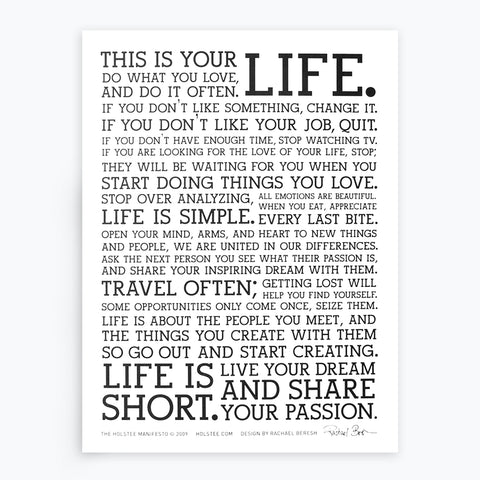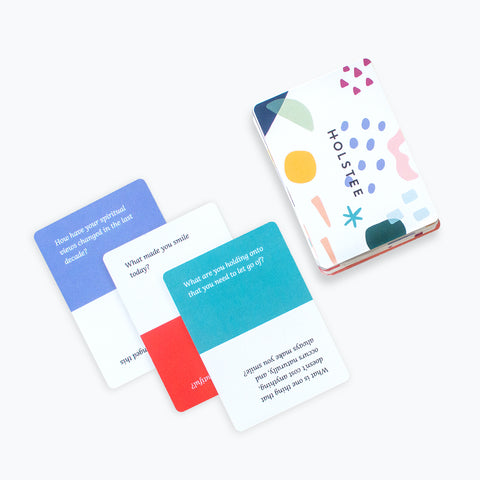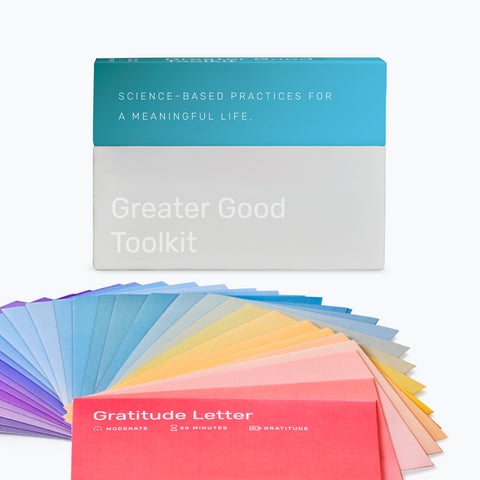Everyone is unplugging. And probably as you read this on your tablet or smartphone or take a moment to look around at the sea of faces nearby, all blocked by rectangular contraptions of wiring and connectedness, you’d like to say: “How’s that now?” I get it. As I write this, I have nine other tabs open and my iPhone glued to my side. "But it's for work," you might say, or "I'm just catching up," you tell yourself. I get that, too.
As Cindi Leive, editor-in-chief of Glamour, notes in a summary of a week-long digital detox: “When you're not on your phone, you instantly notice: Everyone else is. Like, literally everyone.” So maybe we aren’t all quite unplugged just yet. But we’re thinking about it. And we’re reading a lot of studies on why we should maybe consider it, why we should find a way to program it into our already jam-packed, fast-paced schedule. And we’re being told that if we could stop Instagram-ing every single second of our lives, our memories would actually be more vivid and our relationships stronger. So we Tweet out an article on this very subject and then forget about it for another week or two, until we’re feeling bogged down by inbox overload (again) and stressed out (again) by the constant pull for our attention in a thousand different directions at once.
On a recent train ride from New York to New Jersey, many tired, frazzled commuters (self-included) were informed that several trains had been canceled due to track issues, resulting in passengers that would ordinarily fit on three or four rush hour trains to cram fitfully onto one, single train, unhappily jammed side-by-side, grumbling about the lack of space and need to stand.
Despite our literal shoulder-to-shoulder positioning on what was sure to be an eternal ride home, and despite the fact that being so smashed into perfect strangers didn’t allow for much visual scope, I noticed that nearly everyone in my immediate vicinity had managed to scoop their phones out of their pockets and bags, only inches away from each of their tired faces, scrolling, reading, frowning, fussing, looking for a way to pass the uncomfortable time we were about to spend together.

Because of the standing and my goal to not grip the arm of a total stranger to keep myself reasonably upright, at one point during the exiting and entering of even more people combined with the lurching of the train car, I found myself suddenly toppling over, losing my balance in the unsuspecting crowd. But before I completely fell into a swarm of people who might have barely noticed, I felt a firm but gentle grasp on my forearm and a quiet but clear voice asking me, “You okay?” This voice and kind assistance came from an older woman, impossibly slight in a sky blue tracksuit, gracefully perched on top of a suitcase. Her hands, still tightly wrapped around my arm until I regained my composure, were covered in delicate rings, one on each finger. “You okay?” she asked again, and I nodded: yes, I was.
The fact that this woman reaching out to me was both startling and rare woke me up inside. While the thought of a stranger grabbing my arm would normally alarm me or make me cringe, there was something about her level of attentiveness, not just to me but to what was going on around her, that for me defined what presence truly looks like. Does our lack of it have something to do with the screens that our constantly in front of our faces? Maybe. Is there something being lost in translation from those screens to our real lives? I would argue, definitely. But beyond the unraveling of our communication with others and ourselves, I think what we lose in our lack of presence, in our lack of participation with the moving world, is our ability to truly see one another. What has become invisible to us because we claim to be too busy? What has been discarded as less important? What have we forgotten altogether? What in our perception has been altered through our constant itch for more?
Will forgoing Facebook for a few hours bring us crashing back to the here and now and a stop-and-smell-the-roses mentality? I don’t know. I think it’ll help, sure. I think the first step in being more awake to the world around us could certainly begin with simple phone etiquette (which is putting it pretty nicely). And should everyone on that train ride have instead made eye contact with each other and had genuine, meaningful and life-changing conversation? Not necessarily; but it's a possibility I don't mind considering. And of everyone around me on that day, I am grateful that there was someone who chose to really look around, to really sense her surroundings and pay attention to more than latest viral YouTube clip.
Living beyond a technological daze has to come first from our deep inner desire to do so, to reclaim something that we used to know, of choosing our moments of wonder and really living within them. Of deciding which pieces of today are just for ourselves, are just for those you’re with, of re-learning to savor, to reach out to those around you before they stumble (in both the literal and figurative sense), to really look around, to really take it in, to breathe deep, to breathe deep again: no filters, no links, no hashtags, no abbreviated messaging. What then would we truly see? Will we notice more, notice deeply, and notice enough to ask each other (and ourselves), and to truly care about the response we receive to, “You okay?”
___________________________________
Helen Williams is the Community Love Director at Holstee. She is passionate about cooking and writing which pair well together on her vegetarian food blog, green girl eats. She's strives, every day, to be less sorry.
Begin your day feeling grounded and inspired.
A free 30-day email series where we share the most impactful stories and ideas that have helped us on our journey to live a more meaningful life.
✌️ Free. Unsubscribe anytime.






















